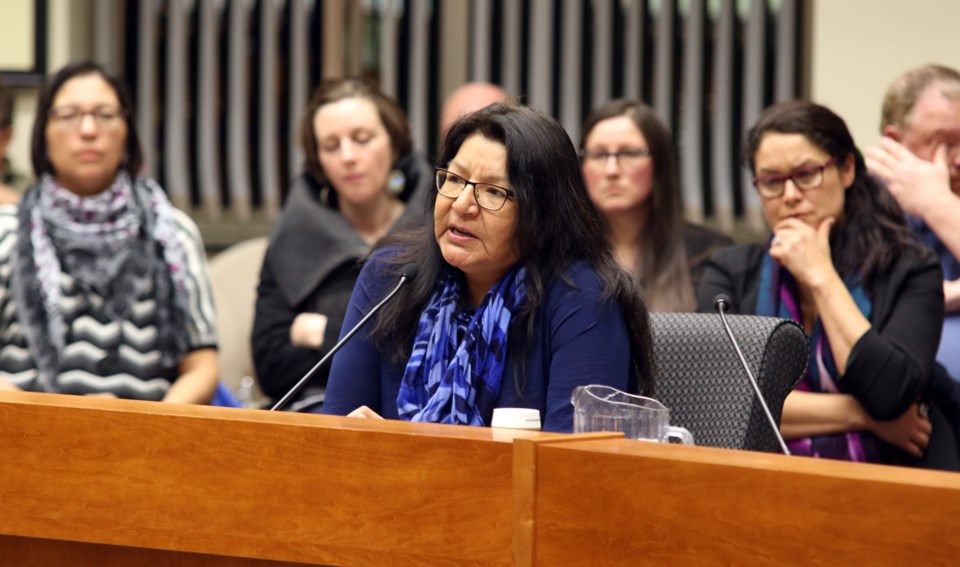THUNDER BAY -- The city's legal department advised city councillors not to attend the 2016 coroner's inquest into the deaths of seven First Nations youth who were living in Thunder Bay pursuing their education.
Considering those councillors were tasked with approving the municipality's response to the inquest's recommendations on Monday, their absence during the proceedings was a detail that didn't escape Nishnawbe Aski Nation Deputy Grand Chief Anna Betty Achneepineskum.
"During the inquest, I'm not sure if any of you came to sit in that courtroom to listen to the testimony of the parents who lost their children and to the police officers and to others who were part of the inquest," Achneepineskum said.
"(Nishnawbe Aski Nation Grand Chief Alvin Fiddler) and I, the staff and our education partners made an effort to be part of that inquest. I don't remember seeing any of you there... I believe you as a city council, you have the responsibility to ensure we don't keep losing our students."
Coun. Rebecca Johnson was the only member of council who claimed to have watched a live stream of the inquest but no elected official claimed to have attended in person.
McKellar Coun. Paul Pugh and Northwood Coun. Shelby Ch'ng formally apologized for their absence.
"I"m afraid. I'm ashamed of myself for being afraid and not going," Ch'ng said through tears.
"I watched from the sidelines. I just read the articles and the reports but I wasn't there and it was because I was afraid. My shop is within 10 metres of the courthouse and I didn't go once. And I'm sorry."
City manager Norm Gale refused to comment on why the city's legal department advised councilors not to attend the inquest.
Council unanimously passed the plan, which includes developing $1.35 million in youth programming over five years as well as improving recreation and mentorship opportunities.
Thunder Bay's ambition in the inquest's aftermath is planted in improving communication and relationships with the Indigenous community. Dennis Franklin Cromarty High School and the Matawa Learning Centre representatives both expressed progress has been made over the last year.
Achneepineskum sees the city's response is moving faster and more effectively than either the provincial or federal governments.
"It is true there have been significant changes," she said.
"The city is willing to work with our students and our educational facilities here as well as the Thunder Bay Police Service is very receptive to working with our students in coming there and building those relationships. That's very important."
The Thunder Bay Police Services Board is creating a position designed to be permanently held by an Indigenous person but the new seat won't come with a vote. Both NAN and the board have committed to lobbying the province for that role to become a voting member, as Ontario is currently overhauling its Police Services Act.
"I did tell the police services board, having a resource person was not what we were looking for," Achneepineskum said.
"We accept that will be a temporary solution at this time but it's not one we'll accept as a long-term fixture."
Administration will next update council on its progress implementing the inquest's recommendations in May.
